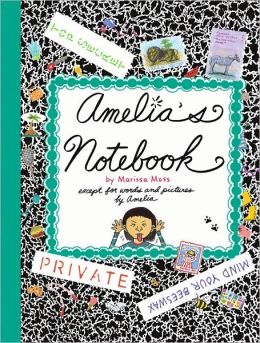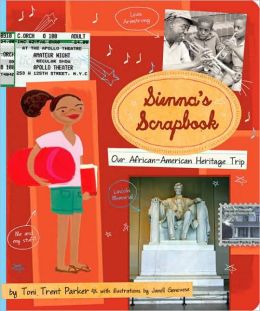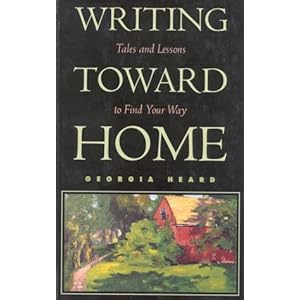Writer write.
Are you writing in your writer's notebook?
Are you recording your thoughts, observations, scraps of poems and pieces of story ideas.
Have you started a draft in your notebook of that letter to the editor or other piece that you have been meaning to write?
In the previous post, The Writer's Notebook, Part 1, we considered how and why to keep a writer's notebook. Today I want to share resources that will suggest a variety of ways to explore writing in your notebook.
Many writers find books about writing and writing exercise books to be useful sources of inspiration-- they suggest ways to play with language, experiment with forms, explore topics of interests, and to write what you didn't know you wanted or needed to write.
I am always working my way through such writing guides or companions.
It helps me deliberately practice writing using techniques that may be new to me, that I might not have thought of or known to use-- it helps me become a better writer.
It also gives me a wide range of experiences and a great store of ideas, as I design and develop writing possibilities for others. I am always on the lookout for these supportive texts.
One excellent source for books on writing, no matter what the focus you are seeking, is the Poet and Writers Best Books On Writing Page. You will find on this list many books that will support you, as you experiment and explore.
In Writers and Their Notebooks, Diana M. Raab gives us a wonderful colleciton of essays by professional writers, sharing how they use their notebooks to explore and discover new language and writing. Included in the collection are sample journal or notebook entries and excerpts of early drafts of now published pieces
I am currently interested how we craft powerful sentences-- improving my own technique and capacities in this area and building on sentence work I developed with my students. So I am working my way slowing through several related books including, How to Write a Sentence by Stanley Fish, and at the same time rereading Short Sentences about Writing by Verlyn Klinkenborg.
Personal Favorites
My favorite books--the ones I return to often--may also be helpful to you I value these book because they allow me to write to the same prompts or suggestions several times, producing something entirely new each time.
- The Practice of Poetry: Writing Exercises from Poet Who Teach edited by Robin Behn & Chase Twitchell.
- Writing Down the Bones:Freeing the Writer Within by Natalie Goldberg
- Writing Toward Home: Tales and Lessons To Find Your Way by Georgia Heard
- Room to Write by Bonni Goldberg
- In the Palm of Your Hand: ThePoet's Portable Workshop by Steve Kowit
- Tell it Slant: Writing and Shaping Creative Nonfiction by Brenda Miller& Suzanne Paola
Resources for Teachers
If you teach writing, these are books may assist in supporting your students and their work in writer's notebooks
- Notebook Know-How: Strategies for the Writer's Notebook by Aimee Buckner
- Breathing In, Breathing Out: Keeping a Writer's Notebook by Ralph Fletcher
And these additional texts will support you as you develop and design mini-lessons, short writing invitations, and consider writing possibiliies for your students using mentor texts ( See previous post, Mentor Texts: Learning to Write from What We Read)
- What a Writer Needs by Ralph Fletcher
- Wondrous Words: Writer and Writing in the Elementary Classroom by Katie Wood Ray
- Deeper Writing: Quick Writes and Mentor Texts to Illuminate New Possiblities by Robin W. Holland
- Writing A Life: Teaching Memoir to Sharpen Insight, Shape Meaning--and Triumph Over Tests by Katherine Bomer
Resources for Students
Several excellent texts are designed specifially for the writing student and will support them directly in their notebook work and their writing lives.
- The Writer's Notebook: Unlocking the Writer Withing You by Ralph Fletcher (This is one book in an excellent series of books for young writers by the same author. I have used several of the titles in after-school student writing groups.
- Just Write:Here's How by Walter Dean Myers
Finally, you will also want to provide your students with models of notebooks to show both textual and visual possiblities as the create their own notebooks.These are a great start.

Amelia's Notebook by Marissa Moss
( See the entire series of Amelia's NotebooksO

Sienna's Scrapbook ; Our African American Heritage Trip
by Toni Trent Parker

My Name is Mina by David Almond
I invite you to explore these resources and to experiment with the many possiblities provided by them for you and your students as you create your own writer's notebooks.
I also invite you to share in this space the notebooks you are creating.
Today's Deeper Writing Possibility
In your notebook braintorm a list of writing possibilites.
Include current events, relationships and observations in your life and in the world.
List your wonderings and your wanderings.
List your accomplishment and achievements and your failures and regrets.
Select an item from your list on which to reflect. Write your musings and questions related to this item.
To what new topics does your writing point? Add those new possilibities to the list above.
Resources for Teachers
If you teach writing, these are books may assist in supporting your students and their work in writer's notebooks
- Notebook Know-How: Strategies for the Writer's Notebook by Aimee Buckner
- Breathing In, Breathing Out: Keeping a Writer's Notebook by Ralph Fletcher
And these additional texts will support you as you develop and design mini-lessons, short writing invitations, and consider writing possibiliies for your students using mentor texts ( See previous post, Mentor Texts: Learning to Write from What We Read)
- What a Writer Needs by Ralph Fletcher
- Wondrous Words: Writer and Writing in the Elementary Classroom by Katie Wood Ray
- Deeper Writing: Quick Writes and Mentor Texts to Illuminate New Possiblities by Robin W. Holland
- Writing A Life: Teaching Memoir to Sharpen Insight, Shape Meaning--and Triumph Over Tests by Katherine Bomer
Resources for Students
Several excellent texts are designed specifially for the writing student and will support them directly in their notebook work and their writing lives.
- The Writer's Notebook: Unlocking the Writer Withing You by Ralph Fletcher (This is one book in an excellent series of books for young writers by the same author. I have used several of the titles in after-school student writing groups.
- Just Write:Here's How by Walter Dean Myers
Finally, you will also want to provide your students with models of notebooks to show both textual and visual possiblities as the create their own notebooks.These are a great start.
 |
| Amelia's Notebook by Marissa Moss ( See the entire series of Amelia's NotebooksO |
 |
| Sienna's Scrapbook ; Our African American Heritage Trip by Toni Trent Parker |
 |
| My Name is Mina by David Almond |
I invite you to explore these resources and to experiment with the many possiblities provided by them for you and your students as you create your own writer's notebooks.
I also invite you to share in this space the notebooks you are creating.
Today's Deeper Writing Possibility
In your notebook braintorm a list of writing possibilites.
Include current events, relationships and observations in your life and in the world.
List your wonderings and your wanderings.
List your accomplishment and achievements and your failures and regrets.
Select an item from your list on which to reflect. Write your musings and questions related to this item.
To what new topics does your writing point? Add those new possilibities to the list above.






No comments:
Post a Comment